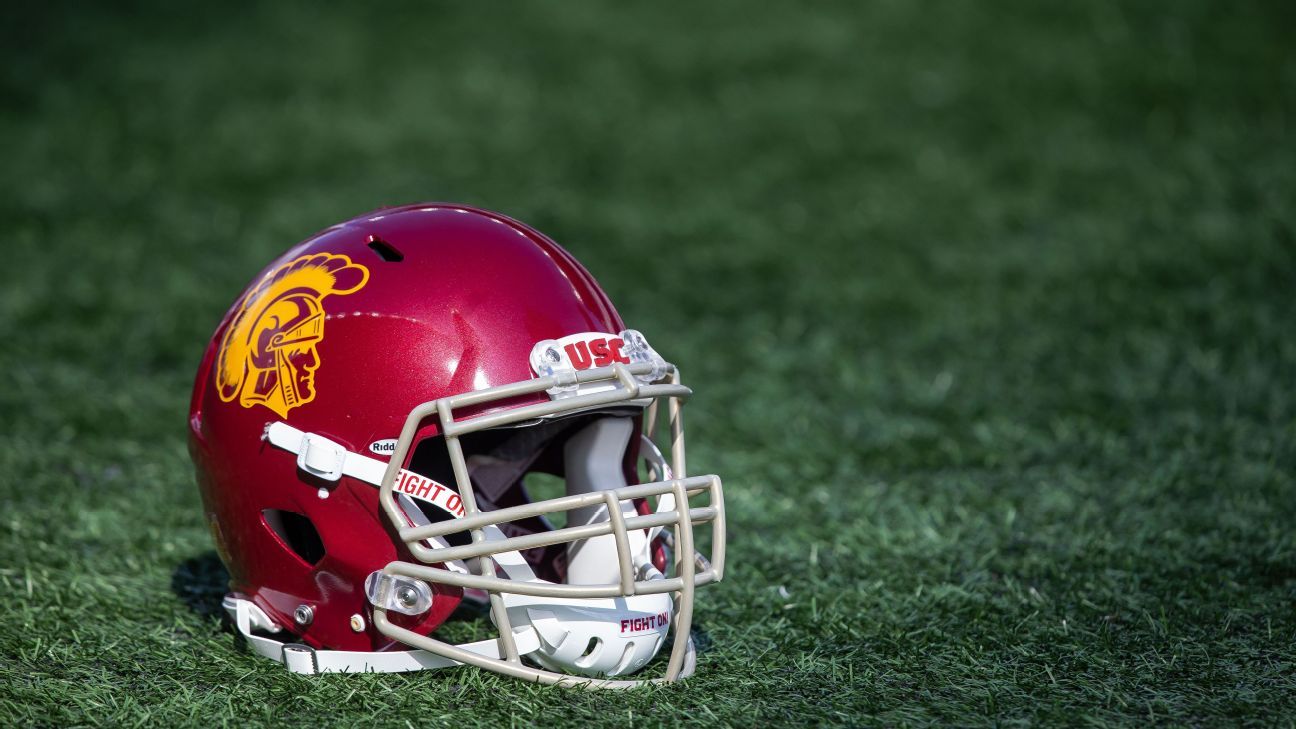
LOS ANGELES — A Los Angeles jury on Tuesday rejected a claim by the widow of a former
“We are gratified that the jury, after considering four weeks of evidence and testimony, agreed overwhelmingly with our position in this case,” Scott Bearby, NCAA senior vice president of legal affairs and general counsel, said in a statement. “The NCAA bore no responsibility for Mr. Gee’s tragic death, and furthermore, the case was not supported by medical science linking Mr. Gee’s death to his college football career. We express our deepest sympathies to Mr. Gee’s family.”
The statement also said the organization “will continue to aggressively defend against cases like this that wrongly try to exploit the legal system to unfairly target the NCAA.”
Alana Gee had testified that the college sweethearts had 20 good years of marriage before her husband’s mental health began to deteriorate and he became angry, depressed and impulsive, and began overeating and abusing drugs and alcohol.
Attorneys for Gee said CTE, which is found in athletes and military veterans who suffered repetitive brain injuries, was an indirect cause of death because head trauma has been shown to promote substance abuse.
The NCAA said the case hinged on what it knew at the time Gee played, from 1988 to ’92, and not CTE, which was first discovered in the brain of a deceased NFL player in 2005.
Gee never reported having a concussion and said in an application to play with the Raiders after graduating that he had never been knocked unconscious, NCAA attorney Will Stute said.
“You can’t hold the NCAA responsible for something 40 years later that nobody ever reported,” Stute said in his closing argument. “The plaintiffs want you in a time travel machine. We don’t have one at the NCAA. It’s not fair.”
Attorneys for Gee’s family said there was no doubt that Matt Gee suffered concussions and countless sub-concussive blows.
Mike Salmon, a teammate who went on to play in the NFL, testified that Gee, who was team captain his senior year, once was so dazed from a hit that he couldn’t call the next play.
Gee was one of five linebackers on the 1989 Trojans squad who died before turning 50. All displayed signs of mental deterioration associated with head trauma.
As with teammate and NFL star Junior Seau, who killed himself in 2012, Gee’s brain was examined posthumously at Boston University’s Chronic Traumatic Encephalopathy Center and found to have CTE.
Jurors were not allowed to hear testimony about Gee’s deceased teammates.
Alana Gee’s lawyers had argued that the NCAA, which was founded in 1906 for athlete safety, had known about impacts from head injuries since the 1930s but failed to educate players, ban headfirst contact or implement baseline testing for concussion symptoms.
Her lawyers had asked jurors to award $55 million to compensate for her loss.
Alana Gee had tears in her eyes and sniffled as the verdict was read. She told one of her lawyers that she didn’t understand how the jury came to that decision, and declined to comment afterward.
“We feel deep sympathy for the Gee family right off the bat,” Stute, the NCAA attorney, said afterward. “But we feel like this verdict is a vindication of the position we’ve taken in all these cases.”
The Associated Press contributed to this report.






